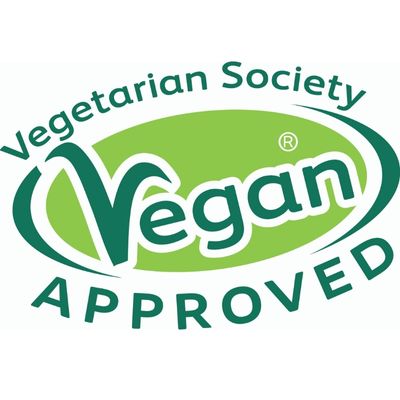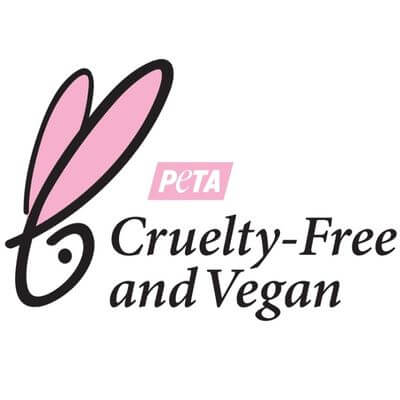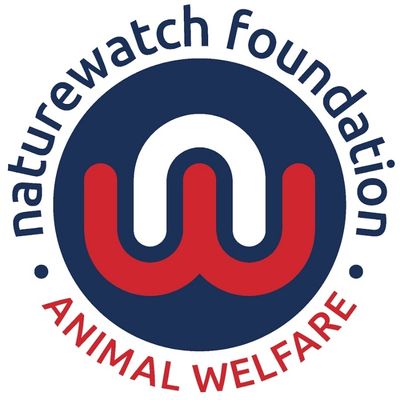7 COMMON PET FOOD MYTHS … BUSTED

‘Dogs are descended from wolves so must be carnivores’, ‘dogs need meat for protein’ - sounds familiar? There’s so much confusion about feeding our dogs, so many myths and misconceptions about the merits of plant-based diets versus meat-based diets. Here we put the record straight with the plain facts about healthy options for your dog.
● Dogs aren’t wolves and they’re not carnivores; they’re omnivores like us
● Protein can come from plant-based sources other than meat
● The essential amino acids that a dog needs to stay healthy can be found in plant proteins
● Raw meat diets can cause foodborne illnesses and may not contain enough essential nutrients
● Dogs can easily get enough vitamins from plant sources
● It’s not cruel to feed your dog a plant-based diet if it contains all the key vitamins, minerals and nutrients your dog needs to stay healthy
● Meat-based pet food is bad for our planet - 30% of intensively farmed animals are bred specifically for our pets’ food bowls
● Studies have shown a link between commercial meat-based pet food and increased risks of diseases
● Evidence has linked plant-based diets to lower levels of diseases, fewer allergies, reduced inflammation and better weight management
The debate about whether or not a plant-based diet is suitable for dogs rumbles on, often on social media, with a lot of misinformation thrown in for good measure. Many people who have talked online about transitioning their dogs to a plant-based or flexitarian diet have come in for criticism or have been accused of being irresponsible for making that choice. But there is substantial scientific evidence that dispels many of the myths, half-truths and preconceptions that form the basis of people’s mistrust of feeding our furry family members a plant-based diet.

MYTH : Dogs are descended from wolves, so must be carnivores
Dogs aren’t wolves and they’re not carnivores; they’re omnivores like us, able to eat and remain healthy with both plant and animal foodstuffs. Yes, they come under the scientific order Carnivora, which includes wolves and other meat-eating species, but it also includes herbivores and omnivores, such as racoons, bears and giant pandas. Unlike wolves, dogs have lived alongside humans for thousands of years feeding on human food scraps. As humans began to eat more plant-based food, following the agricultural revolution some 12,000 years ago, so did their furry companions. This probably triggered the evolutionary processes that have given modern day dogs the digestive capabilities to eat almost all the foods that we eat today. In contrast, there was no evolutionary advantage for wolves to adapt to plant-based diets. The science backs this up: research has shown that dogs have up to 1,300% more copies of the amylase gene than wolves, which allows dogs to thrive on a relatively starch-rich (i.e. plant-based) diet. According to Chicago vet Dr Donna Solomon, studies have identified no less than ten key genes that give our domesticated dogs’ an increased ability to digest starch and fat relative to their ancestors. Paleontological data also shows that the duplication of this gene in dogs, dates back at least 5,000 to 7,000 years suggesting that dogs’ biological make-up started to diverge from wolves very early in their domestication.
The genetic evolution of dogs parallels the genetic evolution of humans according to evolutionary geneticist Peter Savolainen. As we transitioned from hunter gatherers to grain and vegetable farmers, we too duplicated our amylase gene with an evolutionary adaptation to a starch-rich diet. As a result we don’t crave the diets of our distant ancestors; what we need today is totally different to what we needed back then. As vet Brennen McKenzie suggests, dietary needs aren’t always best met by feeding modern animals a diet that reflects those eaten by their wild ancestors. Even wolves don’t rely exclusively on meat-based diets, meaning they’re not strict carnivores. In fact, wolves have been known to snack on grass and berries when lacking in vitamins.

MYTH : Dogs need meat for protein
Protein isn’t found exclusively in meat. Yes, meat is a good source of protein, but so are many plants and organic compounds - including green peas, lentils, hemp, chickpeas, brown rice, barley, spinach, yeast and fungi – and this high-quality protein can be just as beneficial, if not more. Of course, dogs need protein to develop their bones and muscles, recover from exercise and injury, and maintain their immune systems and evidence shows that dogs can thrive on a meat-free diet. The same applies to humans, which is how an increasing number of world-leading athletes are smashing through personal bests after transitioning away from meat altogether.
Part of the myth behind people thinking dogs need meat for protein is the amino acids present in meat. Like humans, dogs need amino acids – the building blocks of protein which help build muscle, fight infection and produce hormones, for optimum health. The essential amino acids that a dog needs to stay healthy can be found in plant proteins (complete proteins).
MYTH: Raw meat is the best diet for dogs
Raw meat diets can cause foodborne illnesses by introducing disease-causing bacteria such as E. coli and Salmonella into your pet’s digestive system, warn the British Small Animal Veterinary Association and the American FDA.
Although there’s been a rise in interest in raw meat diets, feeding just one food group in this way may mean your dog isn’t getting enough essential nutrients, so it could damage the health of your dog if given long-term. There’s also the danger of choking on bones, breaking teeth or causing an internal puncture. And the raw meat fed to a dog today has little relation to the prey a wolf may have killed thousands of years ago. In comparison a plant-based diet is an all-round healthy and safe option, providing your dog with all its essential nutrients.
MYTH: A plant-based diet doesn’t give enough vitamins
Dogs can easily get enough vitamins from plant sources, including Vitamins A, B and D. As long as plant-based pet food strikes the right balance of proteins, fats, amino acids, vitamins, minerals and nutrients, it can provide everything a dog needs to lead a healthy life, and a commercial plant-based pet food will ensure these levels are met. Some breeds of dogs need supplementation of two amino acids, L-carnitine and taurine, which are usually added to vegan dog foods or can be given as supplements. Don’t forget, that like humans, if your dog gets an hourly walk a day in sunlight, they shouldn’t need any further Vitamin D supplementation if they’re on a plant-based diet. Dogs can absorb the sun’s Vitamin D through their skin, even though they have fur. Some darker skinned dogs will absorb a bit less.

MYTH: Meat-based dog food is healthier
Studies have shown a link between commercial meat-based pet food and increased risks of diseases from kidney failure and liver disease to musculoskeletal disorders, neurological diseases, bleeding disorders, birth defects and allergies. Modern animal meats potentially contain many contaminants, toxins, pathogenic bacteria, and added antibiotics and hormones. They’re not very ‘natural’ and may contain ingredients that we’re unlikely to know the origins of; our dogs may be eating a whole host of animal by-products – from pulverised feathers and beaks, to horse meat contaminated with barbiturates. Some ingredients can be unsafe, contaminated with faeces, blood and other bodily fluids.
In contrast, evidence has linked plant-based diets to lower levels of diseases, fewer allergies, reduced inflammation and better weight management, not to mention improved mobility, higher energy levels and above all, greater longevity. Studies have shown a decrease in incidences of cancer and infections when dogs are fed a plant-based diet, as well as arthritis and diabetes regression, cataract improvement, healthier teeth and gums, reduced eye discharge and other health benefits.
Allergies in our dogs are on the increase and research has shown that many are caused by a reaction to animal protein in pet food, rather than grains. Food sensitivities can lead to diarrhoea, vomiting, digestive issues, rashes and itchy skin, yeast infections, joint pain and arthritis. Many vets now acknowledge that a plant-based diet can help address the underlying causes of these conditions by eliminating allergens that our dogs have been exposed to. Plant-based foods are easily digestible, hypoallergenic and naturally anti-inflammatory, which can bolster our dogs’ immune systems, reduce the risk of infection and relieve the need to scratch and lick.

MYTH: It’s cruel to feed your dog a plant-based diet
Not if that diet is a highly nutritious one that will help your dog live a long, healthy life. Your dog is your responsibility and we make a lot of important choices for our pets throughout their lifetime. Feeding them a nutrient-rich diet can only be a good thing, the actions of a responsible owner, so whether you choose to make a total switch from a meat-based diet to a plant-based one, or take a flexitarian approach and give your dog some meat in their diet as well as plant-based food, that choice is yours – and your dog’s. They will let you know if they don’t like the food they’re given!
Just because dogs seem to want to eat meat doesn’t mean that it’s instinctual. In a study published in the Journal of Ethology, researchers found that puppies did not share the same preference for meaty-smelling foods as adult dogs, so were equally happy eating non-meat-based foods, suggesting that preferring meat is a learned behaviour; not innate.
As long as we’re doing no harm to our dogs’ wellbeing, choosing pet food that can promote their health, protect other animals and contribute towards a more sustainable future and healthier planet, is a choice we should feel comfortable making.
MYTH: Using meat-based dog food isn’t bad for our planet as it’s just made from waste human food
That’s not true. 30% of intensively farmed animals are bred specifically for our pets’ food bowls, so the environmental impact of meat farmed just to produce commercial pet foods is significant. Research by the University of Edinburgh shows that an area twice the size of the UK is used to produce dry pet food each year. Yes, some leftover waste human food is used in pet foods, but a quarter of the environmental impact of meat production comes from the pet-food industry. Transitioning a seventy-pound dog from a raw meat diet to a plant-based diet could save 2,200 gallons of water, approximately sixty square feet of rainforest, around ninety pounds of grain, and the lives of two farm animals...every day, say the authors of ‘The Clean Pet Food Revolution’.

THE CHOICE IS YOURS – AND YOUR DOG’S
If you’re concerned about your dog’s health and the safety of the food you feed them, or want to help regulate their weight, you may want to introduce some plant-based foods to their diet. It will also give you peace of mind; with a plant-based diet you will know what your dog is eating and its provenance. You can do this gradually; you could still feed some meat-based food and then transition to a fully plant-based diet, or keep a flexitarian mix – whatever suits you and your dog.
It’s important to remember that any canine diet must be nutritionally complete and balanced, comprising the recommended levels of fats, protein, carbohydrates and other macronutrients recommended by canine nutrition experts. You can be assured that Hownd’s innovative plant-based range has been carefully formulated by our experts to contain all the vitamins, minerals and nutrients your dog requires.
Scientific evidence shows that plant-based foods can provide all the nutrients, vitamins, minerals and antioxidants that dogs need to stay healthy, whilst offering a clean, transparent and sustainable alternative to meat-based diets…it could be a great first step in helping your dog to a longer life and better health.
THE HOWND PROMISE
HOWND creates products that help keep dogs happy and healthy for life, while encouraging others to live a planet-kind, cruelty-free lifestyle. We believe the world would be a better place if more people embraced the power of plants.
Our products are kind to our precious planet and the animals that inhabit it. That’s why dogs and their humans love HOWND.
We are convinced that dogs can thrive without compromising the welfare of other animals. Since day one, HOWND pet care has been certified by Cruelty-Free International and is accredited by The Vegetarian (Vegan) Society, PETA Cruelty-Free and The Ethical Company Organisation.
www.dogslovehownd.com






